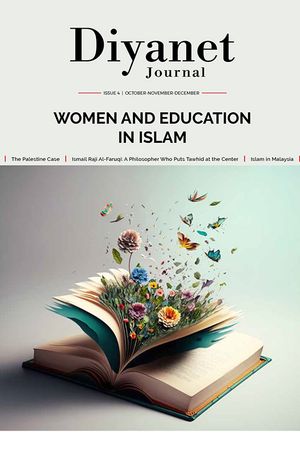Prophet Muhammad (saw) treated all his interlocutors equally, irrespective of their gender. Our Prophet (saw), who attached great importance to the education of women from the first day he received the revelation, allocated special time for the female companions upon their request. He paid particular attention to their education, answering their questions regardless of the circumstances and environment.
Women, like men, were educated by the Messenger of Allah (saw). The mobilization to memorize the Qur’an was also widespread among women. In fact, ‘A’isha, Umm Waraqa, Hafsa, and Umm Salama are mentioned among the first female memorizers (huffaz). Many of the female companions who were educated by the Prophet (saw) were as dedicated as the men in understanding and transmitting revelation. They memorized and narrated hadiths and practiced jurisprudence to the extent of their knowledge. The fact that the number of women who narrated hadith in the first age of Islam, which was a reference for all ages, is expressed in hundreds, and that the names of many of them are mentioned in the main sources, is important to show the intertwined nature of women and education in Islamic society.
In this issue, Diyanet Journal is dedicated to the theme of ‘Women and Education in Islam’. Dr. Elif Arslan, who asserts that the Prophet initiated an educational mobilization encompassing the entire ‘ummah, contributes to our Agenda column with her article titled “Women and Education in Islam”. In the “Pioneers” column, Koray Serbetci writes about the Palestinian philosopher Ismail Raji al-Faruqi, one of the most important intellectuals in the Muslim world. In the “The World of Tomorrow” column, Assoc. Prof. Dr. Bahset Karslı emphasizes, in his article titled “The Digital World and Our Religious Life” that committing acts on digital platforms with an anonymous identity does not absolve us of religious and legal responsibilities. Najla Tammy Kepler shares her journey of accepting Islam with us in the “Revert Stories” column. This month, we conduct an interview with Prof. Dr. Huriye Martı, Vice President of Religious Affairs, about the importance given to women’s education in Islam.
Finally, we would like to reiterate that we strongly condemn the massacres carried out by the occupying Israel in Palestine that have taken place for years in front of the eyes of the world without regard for women, children, or the elderly. We hereby declare once again that we stand with a free Palestine.
We look forward to meeting you in our next issue and wish you an enjoyable reading experience.
Dr. Lamia LEVENT ABUL
